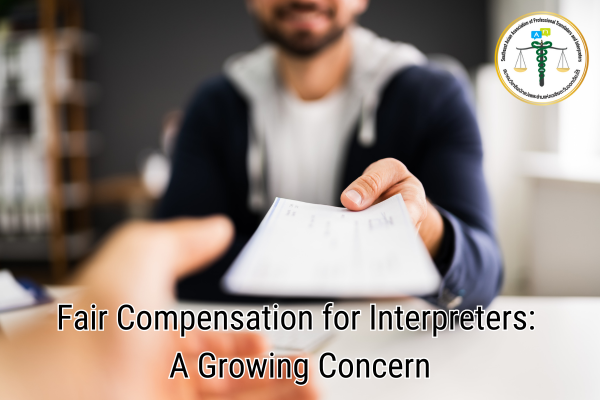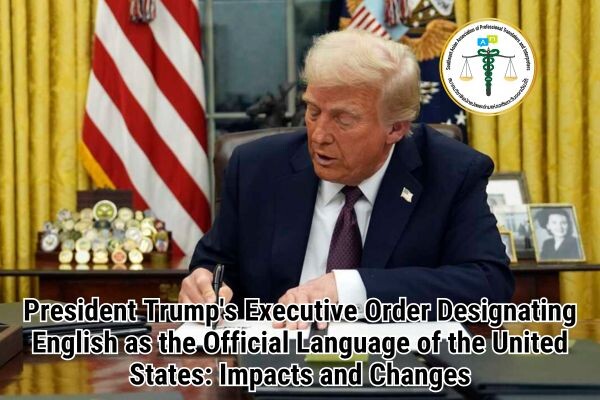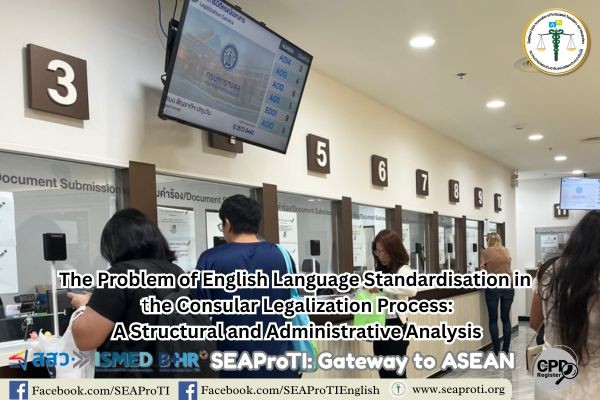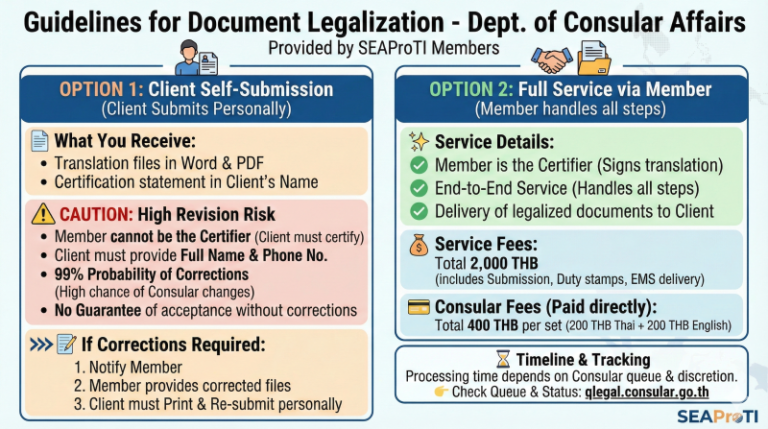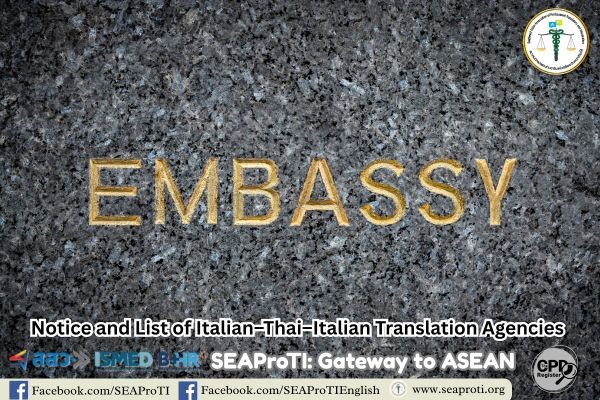Fair Compensation for Interpreters: A Growing Concern
29 December 2024, Bangkok – The interpreting profession faces significant challenges when it comes to fair compensation, particularly for Over-the-Phone (OPI) and Video Remote Interpreting (VRI) services. This issue not only affects interpreters’ livelihoods but also impacts the quality of communication and language access for those who rely on these services.
Current State of Interpreter Compensation
OPI and VRI rates vary widely but often fall short of reflecting the expertise required.
- OPI rates typically range from $0.25 to $0.75 per minute, or $15 to $45 per hour.
- VRI rates are slightly higher, ranging from $0.50 to $0.75 per minute, or $30 to $45 per hour.
- Some companies offer as little as $0.99 to $3 per minute for phone and VRI interpreters.
These rates often fail to account for the specialized skills and cultural knowledge interpreters bring to their work.
Impact of Low Compensation
Inadequate pay for interpreters has far-reaching consequences:
- Quality of Service: Low pay can lead to a shortage of qualified interpreters, potentially compromising the accuracy and effectiveness of communication.
- Access to Care: In healthcare settings, cutting interpreter services due to cost concerns can hinder patient care, especially for those with limited English proficiency.
- Professional Sustainability: Low wages make it difficult to attract and retain skilled interpreters, threatening the long-term viability of the profession.
The True Value of Interpreting Services
Interpreters provide critical services that go beyond simple language translation:
- They facilitate communication in high-stakes situations, such as medical appointments and legal proceedings.
- Their work requires not just language fluency, but also cultural competence, specialized terminology knowledge, and the ability to convey nuanced meanings quickly and accurately.
- Quality interpreting can lead to better outcomes in healthcare, legal, and other settings, potentially saving money in the long run
Advocacy for Fair Compensation
Several organizations and initiatives are working to address the issue of fair pay for interpreters:
- The National Association of Judiciary Interpreters and Translators (NAJIT) has been advocating for fair compensation and improved working conditions for court interpreters.
- Some states, like North Carolina and Nevada, have seen recent pay increases for interpreters due to advocacy efforts.
- Organizations like Found in Translation are stepping into the advocacy space to promote language access by protecting interpreters’ rights and working conditions.
The Way Forward
To ensure fair compensation for interpreters and maintain high-quality language services:
- Industry Standards: Establish and enforce minimum pay standards that reflect the specialized skills and expertise of interpreters.
- Education and Awareness: Educate clients and the public about the value and complexity of interpreting services.
- Professional Development: Support ongoing training and certification programs to maintain high standards in the field.
- Advocacy: Continue to push for policies that recognize interpreters as skilled professionals deserving of fair compensation and benefits.
- Technology Integration: Leverage technology to improve efficiency without compromising quality or fair pay.
By addressing the issue of fair compensation, the interpreting industry can ensure that skilled professionals remain in the field, maintaining high-quality communication services for all who need them. This not only benefits interpreters but also upholds the right to effective communication across language barriers in our increasingly diverse society.
About SEAProTI’s certified translators, translation certification providers, and certified interpreters:
The Southeast Asian Association of Professional Translators and Interpreters (SEAProTI) has officially announced the criteria and qualifications for individuals to register as “Certified Translators,” “Translation Certification Providers,” and “Certified Interpreters” under the association’s regulations. These guidelines are detailed in Sections 9 and 10 of the Royal Thai Government Gazette, issued by the Secretariat of the Cabinet under the Office of the Prime Minister of the Kingdom of Thailand, dated July 25, 2024, Volume 141, Part 66 Ng, Page 100.
To read the full publication, visit: the Royal Thai Government Gazette
ความท้าทายของวิชาชีพล่าม: การชดเชยที่เป็นธรรมในบริการล่ามทางโทรศัพท์ (OPI) และล่ามทางไกลผ่านวิดีโอ (VRI)
29 ธันวาคม 2567, กรุงเทพมหานคร – วิชาชีพล่ามต้องเผชิญกับความท้าทายอย่างมากในเรื่องค่าตอบแทนที่เป็นธรรม โดยเฉพาะสำหรับบริการล่ามทางโทรศัพท์ (Over-the-Phone Interpreting – OPI) และล่ามทางไกลผ่านวิดีโอ (Video Remote Interpreting – VRI) ซึ่งปัญหานี้ไม่เพียงส่งผลกระทบต่อรายได้ของล่าม แต่ยังมีผลต่อคุณภาพของการสื่อสารและการเข้าถึงภาษาสำหรับผู้ที่พึ่งพาบริการเหล่านี้
สถานการณ์ปัจจุบันของค่าตอบแทนล่าม
อัตราค่าบริการล่าม OPI และ VRI มีความแตกต่างกันอย่างมาก แต่บ่อยครั้งยังไม่สะท้อนถึงความเชี่ยวชาญที่จำเป็น:
- อัตรา OPI มักอยู่ที่ $0.25 ถึง $0.75 ต่อนาที หรือ $15 ถึง $45 ต่อชั่วโมง
- อัตรา VRI สูงกว่าเล็กน้อย อยู่ที่ $0.50 ถึง $0.75 ต่อนาที หรือ $30 ถึง $45 ต่อชั่วโมง
- บางบริษัทเสนอค่าจ้างเพียง $0.99 ถึง $3 ต่อนาทีสำหรับล่ามทางโทรศัพท์และ VRI
อัตราเหล่านี้มักไม่คำนึงถึงทักษะเฉพาะด้านและความรู้ทางวัฒนธรรมที่ล่ามนำมาใช้ในงานของพวกเขา
ผลกระทบจากค่าตอบแทนที่ต่ำ
การชดเชยที่ไม่เพียงพอสำหรับล่ามส่งผลกระทบในวงกว้าง:
- คุณภาพของบริการ: ค่าจ้างที่ต่ำอาจทำให้เกิดการขาดแคลนล่ามที่มีคุณสมบัติ ส่งผลต่อความถูกต้องและประสิทธิภาพของการสื่อสาร
- การเข้าถึงบริการดูแลสุขภาพ: ในสถานพยาบาล การตัดบริการล่ามเพื่อลดค่าใช้จ่ายอาจส่งผลเสียต่อการดูแลผู้ป่วย โดยเฉพาะผู้ที่มีทักษะภาษาอังกฤษจำกัด
- ความยั่งยืนในวิชาชีพ: ค่าจ้างต่ำทำให้ยากต่อการดึงดูดและรักษาล่ามที่มีทักษะไว้ในวิชาชีพ ซึ่งเป็นภัยคุกคามต่อความยั่งยืนระยะยาว
คุณค่าที่แท้จริงของบริการล่าม
ล่ามให้บริการที่สำคัญซึ่งเกินกว่าการแปลภาษา:
- พวกเขาอำนวยความสะดวกในการสื่อสารในสถานการณ์ที่มีความเสี่ยงสูง เช่น การนัดพบแพทย์และการพิจารณาคดีทางกฎหมาย
- งานของพวกเขาต้องการทั้งความคล่องแคล่วในภาษา ความเข้าใจวัฒนธรรม ความรู้คำศัพท์เฉพาะด้าน และความสามารถในการถ่ายทอดความหมายที่ซับซ้อนอย่างรวดเร็วและถูกต้อง
- การล่ามที่มีคุณภาพสามารถนำไปสู่ผลลัพธ์ที่ดีขึ้นในด้านการแพทย์ กฎหมาย และด้านอื่น ๆ ซึ่งอาจช่วยประหยัดค่าใช้จ่ายในระยะยาว
การสนับสนุนเพื่อค่าตอบแทนที่เป็นธรรม
มีองค์กรและโครงการหลายแห่งที่พยายามแก้ไขปัญหาค่าตอบแทนล่าม:
- สมาคมล่ามและนักแปลในกระบวนการยุติธรรมแห่งชาติ (National Association of Judiciary Interpreters and Translators – NAJIT) ได้รณรงค์เพื่อค่าตอบแทนที่เป็นธรรมและสภาพการทำงานที่ดีขึ้นสำหรับล่ามศาล
- บางรัฐ เช่น นอร์ทแคโรไลนาและเนวาดา ได้เพิ่มค่าตอบแทนล่ามจากการผลักดันของกลุ่มสนับสนุน
- องค์กร เช่น Found in Translation กำลังช่วยสนับสนุนการเข้าถึงภาษาโดยการปกป้องสิทธิและสภาพการทำงานของล่าม
แนวทางข้างหน้า
เพื่อให้เกิดค่าตอบแทนที่เป็นธรรมและรักษาคุณภาพของบริการภาษา:
- มาตรฐานอุตสาหกรรม: กำหนดและบังคับใช้มาตรฐานค่าจ้างขั้นต่ำที่สะท้อนถึงทักษะและความเชี่ยวชาญของล่าม
- การศึกษาและการสร้างความตระหนัก: ให้ความรู้แก่ลูกค้าและประชาชนเกี่ยวกับคุณค่าและความซับซ้อนของบริการล่าม
- การพัฒนาวิชาชีพ: สนับสนุนการฝึกอบรมและการรับรองอย่างต่อเนื่องเพื่อรักษามาตรฐานในสายงาน
- การผลักดันนโยบาย: รณรงค์เพื่อให้ล่ามได้รับการยอมรับว่าเป็นผู้เชี่ยวชาญที่มีสิทธิได้รับค่าตอบแทนและสวัสดิการที่เหมาะสม
- การผสมผสานเทคโนโลยี: ใช้เทคโนโลยีเพื่อเพิ่มประสิทธิภาพโดยไม่ลดทอนคุณภาพหรือค่าตอบแทน
การแก้ไขปัญหาค่าตอบแทนที่เป็นธรรมจะช่วยรักษาผู้เชี่ยวชาญที่มีคุณภาพให้อยู่ในสายงานนี้ และส่งเสริมการสื่อสารที่มีคุณภาพสำหรับทุกคนในสังคมที่มีความหลากหลายทางภาษาเพิ่มขึ้นเรื่อย ๆ
เกี่ยวกับนักแปลรับรอง ผู้รับรองการแปล และล่ามรับรองของสมาคมวิชาชีพนักแปลและล่ามแห่งเอเชียตะวันออกเฉียงใต้
สมาคมวิชาชีพนักแปลและล่ามแห่งเอเชียตะวันออกเฉียงใต้ (SEAProTI) ได้ประกาศหลักเกณฑ์และคุณสมบัติผู้ที่ขึ้นทะเบียนเป็น “นักแปลรับรอง (Certified Translators) และผู้รับรองการแปล (Translation Certification Providers) และล่ามรับรอง (Certified Interpreters)” ของสมาคม หมวดที่ 9 และหมวดที่ 10 ในราชกิจจานุเบกษา ของสำนักเลขาธิการคณะรัฐมนตรี ในสำนักนายกรัฐมนตรี แห่งราชอาณาจักรไทย ลงวันที่ 25 ก.ค. 2567 เล่มที่ 141 ตอนที่ 66 ง หน้า 100 อ่านฉบับเต็มได้ที่: นักแปลรับรอง ผู้รับรองการแปล และล่ามรับรอง


